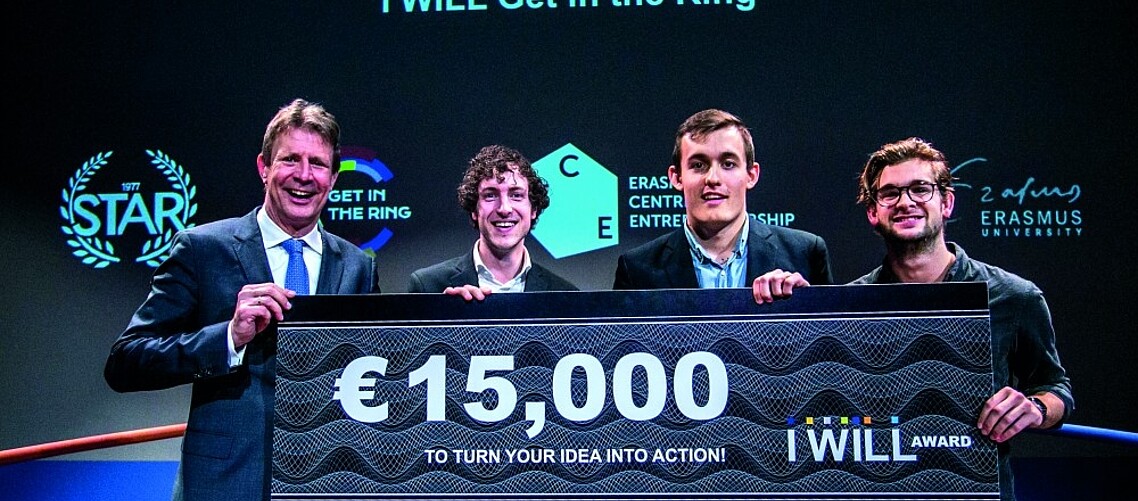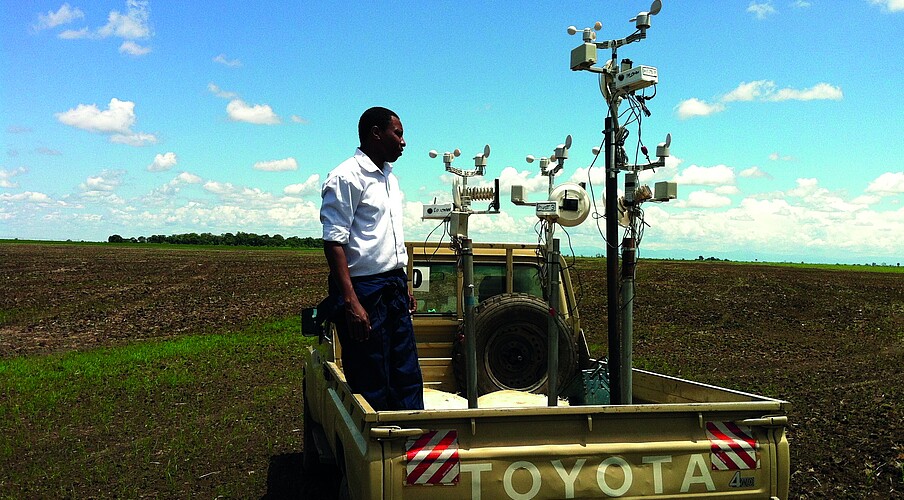Tanzania-based Kukua, which was co-founded by RSM student Ollie Smeenk, has established a successful network of specialised teams to provide a weather forecasting service that enables African farmers to prepare for frequent droughts, flooding and famine, and could put a stop to the 1.5 million tonnes of crops and harvests lost every year.
Underpinning Kukua’s support services is the fact that more than 70 per cent of the African population has access to cellphones, the continent’s most extensive communications network. Taking advantage of this, the company uses existing low-cost technologies in Nigeria, Tanzania, Kenya, Mozambique and Ghana to send wind, rain and temperature forecasts via daily SMS to farmers’ mobile phones.
‘Climate change has made traditional weather patterns obsolete,’ says Ollie Smeenk, who, as well as being co-founder is also head of operations and a third-year student in RSM’s BSc in International Business Administration. ‘Farmers can’t “read” environmental signs about rain any more and can often only afford to buy seeds once, so they’re unpleasantly surprised when their seeds wash away or dry out.’
Kukua has just won RSM’s €15,000 I WILL Award (pictured) to speed its idea along (see p8). The company has a sound business plan. ‘In our targeted markets, we’re able to sell our data to many different industries. This means we can provide data to those who need it most, at a reduced cost. Also, installing the infrastructure is financed by governmental subsidies, not farmers,’ Ollie explains. Kukua can sell its services to commercialised farmers, who will have access to Kukua’s weather platform online to see credible forecasts. ‘Installing the weather stations should be funded as a public service, and agricultural research organisations and commodity traders will be the primary data customers,’ he says.
No one can do it alone
In Swahili, one of Africa’s most common languages, kukua means “to grow”. ‘We strive for farmers to increase their yields,’ says Ollie, who grew up in Tanzania, adding that there is a huge lack of weather stations in Africa. ‘With more weather stations, Kukua can collect more historical data so that the forecasts become more accurate.’ Kukua’s weather sensors are developed through a co-operation between electronic design company SODAQ, owned by Ollie’s father Jan Willem Smeenk and Davis Instruments, an American manufacturing company.
With Kukua’s other co-founder Tom Vanneste, a student in London Business School’s MBA programme, Ollie used both universities’ and its students’ connections to reach the right organisations. ‘For a successful implementation we need to partner with multinationals but we struggle with bureaucracy and administration before something gets approved,’ he says, adding that it is challenging to convince parties to co-operate if they believe they are competitors. ‘We see more potential in installing weather stations together as we can create value this way.’
New partnerships
With the I WILL Award prize money and a recently received EU research and innovation grant, Kukua plans to establish more stations in Nigeria to create a wider reach and help more farmers. Ollie adds that Kukua has already partnered with two local organisations interested in Kukua’s data. Nigeria currently has only one weather station that meets the standards of uploading weather data every three hours, while Kukua’s uploads every 30 minutes. For this, Kukua works with the International Institute of Tropical Agriculture (IITA). ‘IITA is really enthusiastic about our product and will help us with installation and maintenance in Nigeria,’ says Ollie. ‘It might help in other sub- Saharan countries too, if it’s a success.’
Kukua’s next steps also include new products for commercial and smaller farmers. Ollie aims to create a Kukua app and offer insurance policies. ‘More people in Africa are getting smartphones, and the Kukua app would be one of the first apps they use. It will change how people interact with information. ‘By moving people up from the poorest socio-economic group, we’re helping a whole country’s economy,’ says Ollie. ‘Finding new technologies, and helping and connecting more communities, we can create more trade and exchange. If small farmers can produce more than is required to just feed their families, they can sell their crops, leading to an increase in entrepreneurship in those regions.’
Ollie hopes to connect with RSM alumni based on the African continent who work in agriculture, telecommunication or public funding. ‘We aim to install 3,000 weather stations in five years, so we need people with all sorts of expertise. By partnering with local organisations, there’s a higher chance of getting our product accepted.’
More information about Kukua andits activities can be found here.
For details about RSM’s I WILL Award, visit our website.
This article was first published in RSM Outlook summer 2016. You can download RSM Outlook here.


